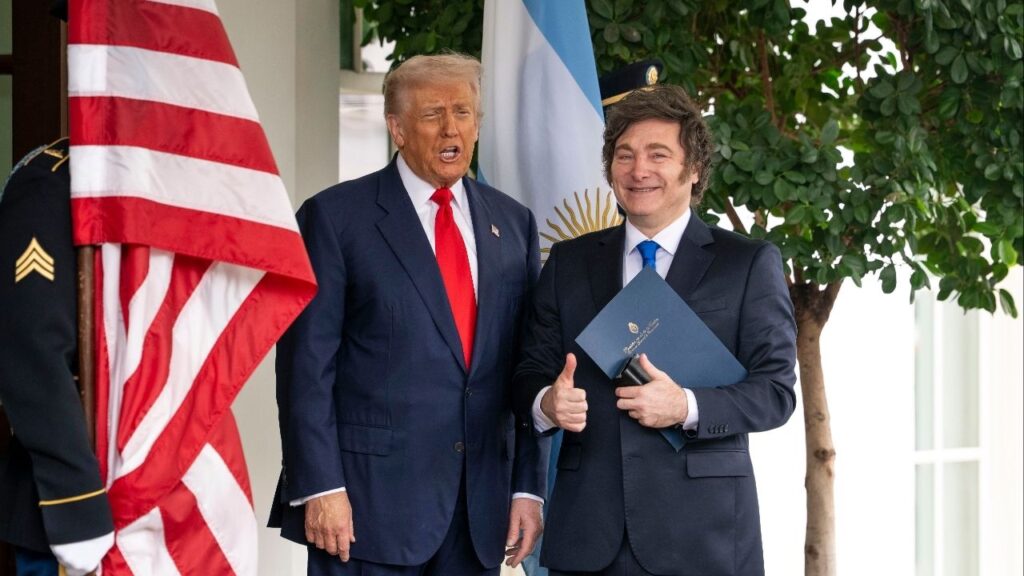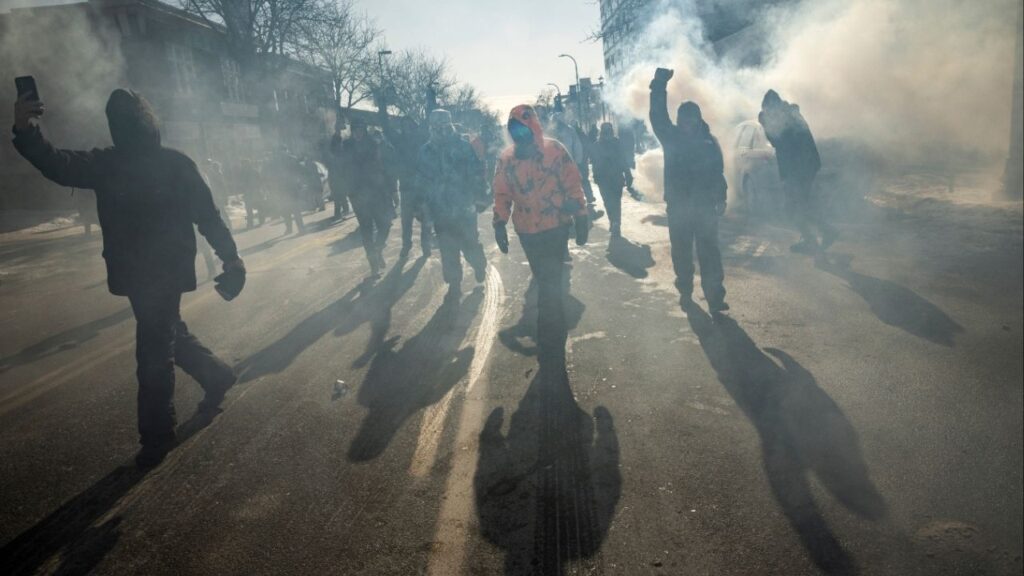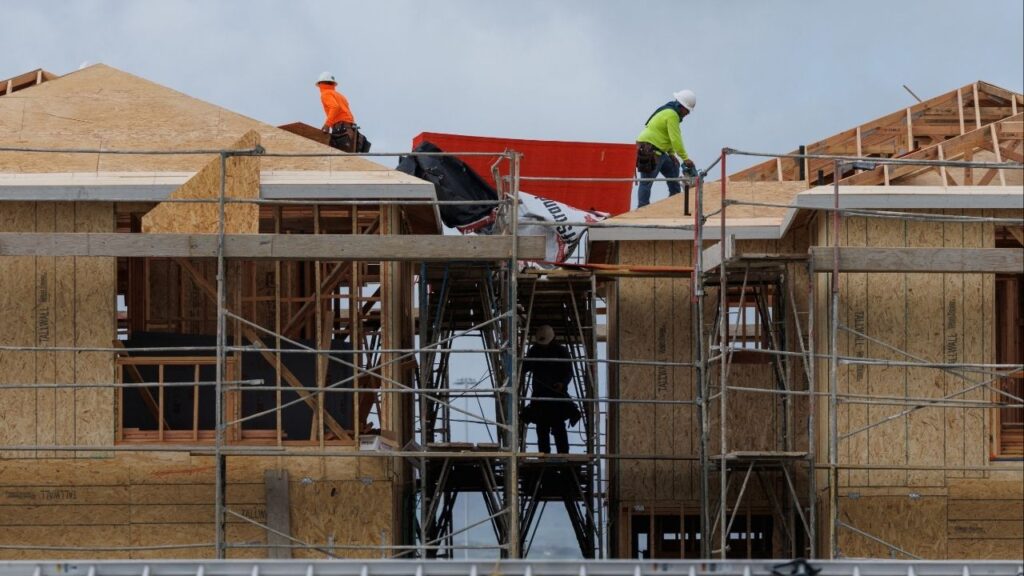Grigory Kels Tsvi, left, crosses the West Bank on a bus, May 10, 2024. Israel says it manages the roads to reduce friction and prevent militant attacks on Israelis — rights groups say the movement restrictions on Palestinians create deep inequality. (Sergey Ponomarev/The New York Times)

- Israeli and Palestinian bus routes diverge in the West Bank, illustrating stark inequalities and restricted mobility.
- Israeli settlers zip along well-maintained roads, while Palestinians face lengthy, checkpoint-laden detours.
- Israel cites security; rights groups argue these roadblocks deepen the division and restrict Palestinian freedom.
Share
|
Getting your Trinity Audio player ready...
|
Getting around the West Bank is never easy, but it’s a lot harder if you are Palestinian. That’s no accident.
We rode along on two bus trips, one for Israelis, the other for Palestinians, that tell a story of separate and unequal roadways.
The two passengers departed from neighboring communities and even used some of the same roads. At a roundabout near Jerusalem, the paths of the Israeli and the Palestinian diverged dramatically.

Rachel Filus, an Israeli living in a West Bank settlement, rode an Israeli bus that could enter Jerusalem. So it took a right at the roundabout and blazed through the Israeli military’s Hizma checkpoint after a cursory glance from the soldiers there.
Abdullah al-Natsheh, a Palestinian going from Ramallah, rode a Palestinian bus that was forbidden to enter Jerusalem. So it went left at the same roundabout, avoiding the checkpoint but setting off on a meandering and bumpy route around the city.
Related Story: Trump Picks Former Arkansas Gov. Mike Huckabee to Be Ambassador to Israel
To differentiate who can drive where, cars have different-colored license plates. Those registered in Israel have yellow plates and can move much more freely. West Bank Palestinian cars have green plates, and except for rare vehicles with special permits, they are barred from certain roads and can’t enter Israel or almost any part of Jerusalem.
“I can’t go to Jerusalem, but my understanding is that it would be much faster,” said al-Natsheh, who is 24. He estimates that it would cut an hour off his trip. Instead, he settles in for a long, uncomfortable ride.
“Life ends,” he said. “But the road never ends.”
When al-Natsheh, a molecular geneticist at a private lab, boarded his bus in an exhaust-filled garage to visit his family in Hebron, he knew Israeli restrictions would hamper his trip. His bus would fight traffic near army checkpoints and use lengthy workarounds on roads that were often crowded and in bad shape.
The Palestinian route from Ramallah to Hebron is only about 50 miles. On good days, it takes an hour and a half. When we drove it, in late May, it took three hours — meaning an average speed of just 17 mph.
Filus, who works in food service in a Jerusalem hospital, boarded her bus in Beit El, an orderly, tree-lined settlement, and zipped along the well-groomed highway that al-Natsheh’s bus had been barred from reaching.
Born in Panama, Filus, 21, immigrated to Israel five years ago. Her family initially lived in east Jerusalem, but she said that living near so many Palestinians made her feel unsafe. Seeking a more religious community and more space, her family moved to Beit El, a West Bank settlement.
“Here we know that all the people are Jewish people,” she said.
At first, she had been scared to share the roads with Palestinians. They drove recklessly, she said, and she had heard that Palestinians threw rocks at Israeli cars. She got used to it and now takes the bus to work regularly.
Related Story: Aid Groups Say Israel Misses US Deadline to Boost Humanitarian Aid Entering
Today, about 500,000 Jewish settlers live in the West Bank, excluding east Jerusalem, among 2.7 million Palestinians. They sometimes live so close together that they can see each other’s homes, but direct interactions are limited, often hostile and sometimes violent.
They regularly drive near each other, however, on the West Bank’s roads.
Israel says it manages the roads to reduce friction and prevent militant attacks on Israelis. Rights groups say the movement restrictions on Palestinians create deep inequality.
“Palestinian free movement on main roads in the West Bank is viewed as something that Israel can give and take as it wishes based on its own interests,” said Sarit Michaeli of Israeli human rights group B’Tselem. “It is providing a swift and fast system of transport for Israeli settlers into Israel and between settlements. This has always been the guiding principle.”
The Palestinian Detour
Early on our detour with al-Natsheh around Jerusalem, the bus reached one of the starkest examples of roads built to keep Israelis and Palestinians apart: the east Jerusalem Ring Road. Palestinian cars use one side; only Israeli-registered cars are allowed on the other. A high wall keeps them apart.
The Palestinian Authority and other critics have called it and others “apartheid” roads. Israel says it is a security measure to prevent Palestinian attacks on Israeli drivers.
The Ring Road led to part of Route 1, a major highway that also separates Israeli and Palestinian traffic, with a towering wall topped with concertina wire.
Later, after a stretch of shared road, the bus turned onto a crowded street with huge red signs declaring it a Palestinian area, which a military directive bars Israelis from entering.
The bus crawled through traffic on a Palestinian commercial avenue. Shops along its sides displayed tools and ladders, furniture and freshly slaughtered sheep.
The bus turned off the avenue and zoomed down a hill, and a baby in the back seat vomited.
Related Story: Israeli Strikes Kill Dozens in Lebanon and Isolated Northern Gaza While ...
The bus soon hit even worse traffic at a roundabout, with cars feeding from three directions into a single road leading to a checkpoint the Palestinians call the Container. It straddles the primary Palestinian road connecting the northern and southern halves of the West Bank.
When Israel closes it, it effectively cuts the territory in half, paralyzing movement.
“You wait,” al-Natsheh said. “There is no choice but this road.”
The bus popped up on to the curb to overtake other cars and finally reached the checkpoint, passing a soldier with an assault rifle inspecting the cars.
Then it traversed one of the slowest sections of the trip: Palestinians call it the Valley of Fire. It is a steep incline, full of switchbacks, to a bridge over a dry creek bed that smells of sewage, followed by a zigzagging ascent out of the valley.
The succession of sharp turns made the baby vomit again.
Once out of the valley, the bus reached the second new detour since Oct. 7, 2023.
Before the war began, the bus could take a smooth road that mostly avoided passing through towns. But since October 2023, the Israeli military has kept many entrances to that road closed to Palestinian cars, forcing the bus to take a zigzagging path on back roads.
Unable to enter the main road, al-Natsheh’s bus twisted back onto more village roads, some of them wide enough for only one car to pass at a time. Children sat at the chokepoints, selling coffee and directing drivers in order to avoid head-on collisions.
Finally, the bus emerged from the villages onto a wider road. Israeli soldiers in guard posts along it held their rifles pointed at the passing drivers.
Related Story: Trump Picks Former Arkansas Gov. Mike Huckabee to Be Ambassador to Israel
Crossing Through Jerusalem
After crossing through the checkpoint, Filus’ bus sped easily toward Jerusalem.
Israel occupied east Jerusalem in 1967 and has annexed it, a move not recognized by most of the world. It has since erased most indications on the ground of the dividing line between Israel and the territory it occupies, known as the green line.
Filus’ bus drove for 4 miles after the checkpoint before reaching the green line. Nothing marked the spot.
She appeared to give little thought to how the road network inconveniences Palestinians, saying simply that they have ways to drive between their cities. In the West Bank, she hardly ever interacts with them.
“Just sometimes when we are on the road,” she said. “But to talk to someone in the West Bank, no.”
She arrived at her stop, climbed off the bus and headed for work.
Few Israelis do the trip from Beit El to Hebron on public transportation, so we did it in two legs.
Near where Filus got off, another Israeli, Grigory Kels Tsvi, boarded a different bus for his home settlement of Kiryat Arba, which was next to al-Natsheh’s destination, Hebron.
Tsvi’s bus departed and sped south on a major highway. Just as there was no marker where Filus left occupied territory, nothing marked where Tsvi entered it.
Related Story: Aid Groups Say Israel Misses US Deadline to Boost Humanitarian Aid Entering
As the bus passed the Palestinian cities of Beit Jala and Bethlehem, towering concrete walls lined the road, meant to keep out Palestinians and prevent attacks on passing cars.
Later, the bus passed a military checkpoint on the other side of the road to prevent Palestinian cars from going the opposite direction, toward Jerusalem.
Tsvi, 77, immigrated to Israel from Kazakhstan in 1992 and moved to Kiryat Arba because housing was cheaper, allowing him to put more money toward his four children’s education, he said.
Like most Israelis, he dismissed the idea of dividing Jerusalem in a peace deal with the Palestinians.
“What kind of capital would it be if you would cross the street and be in another country?” he said.
He likes living in the West Bank.
“My home is my fortress,” he said. “If I live here, then I have to defend this patch of land.”
Related Story: Israeli Strikes Kill Dozens in Lebanon and Isolated Northern Gaza While ...
The Routes Converge
Tsvi’s bus reached an intersection where Palestinian cars could turn onto the main road. This is where his route overlapped with that of al-Natsheh. Tsvi pointed to the mix of yellow and green license plates around the bus, saying they showed that Palestinians could move easily, too.
“There is no discrimination,” he said.
But as the bus drove, it passed Palestinian towns whose access to the highway had been blocked by large gates that the Israeli army had locked.
Tsvi shrugged and said that Israelis had to share the roads with Palestinians.
“What can we do?” he said. “We live here, and they also live here.”
By the time al-Natsheh’s bus reached that same stretch of road, all the bumping, swerving and heat had made him doze off, his head bobbing as he approached Hebron. When he woke up, he pointed out the Palestinian towns whose access to the highway had been blocked, meaning nearly all of them.
Finally, the bus turned into Hebron, and he climbed off the bus, stretched and walked home.
–
This article originally appeared in The New York Times.
By Ben Hubbard, Sergey Ponomarev, Leanne Abraham and Marco Hernandez/Sergey Ponomarev
c. 2024 The New York Times Company
RELATED TOPICS:
Categories
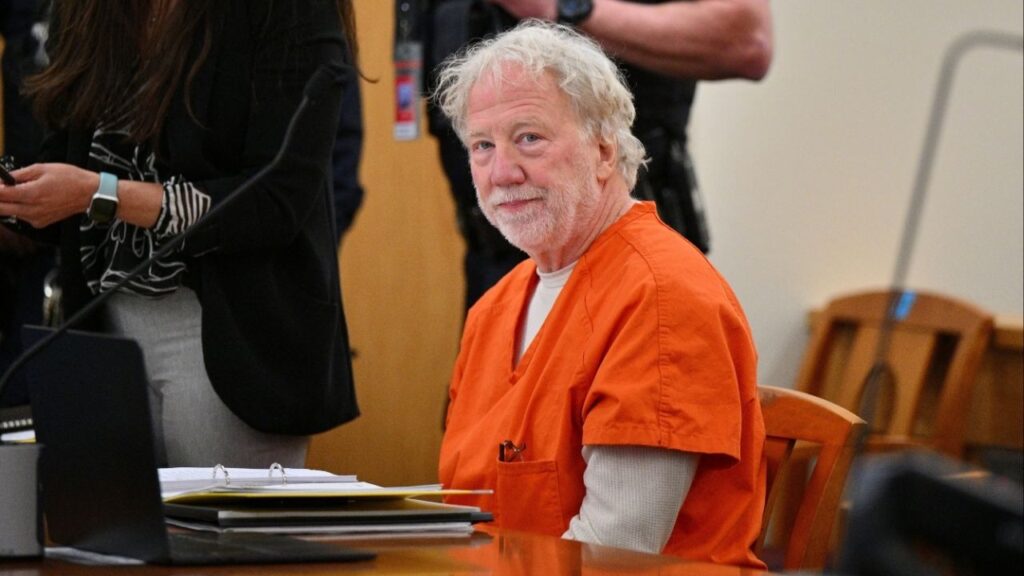
‘West Wing’ Actor Timothy Busfield Indicted on Child Abuse Charges

Bitcoin Bounces Back as Risk Assets Stabilize
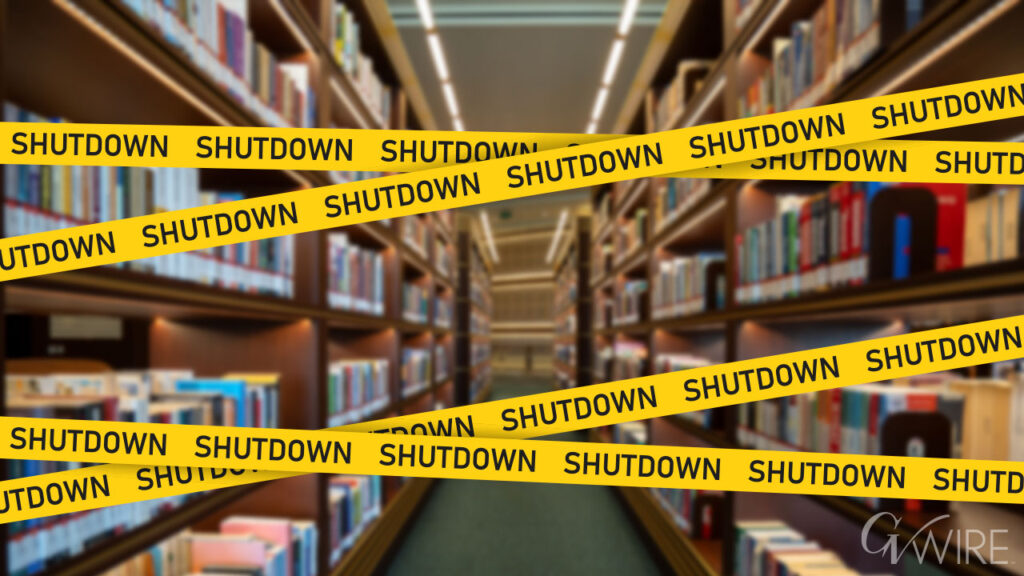
Renovations to Close Downtown Fresno Library for Two Years
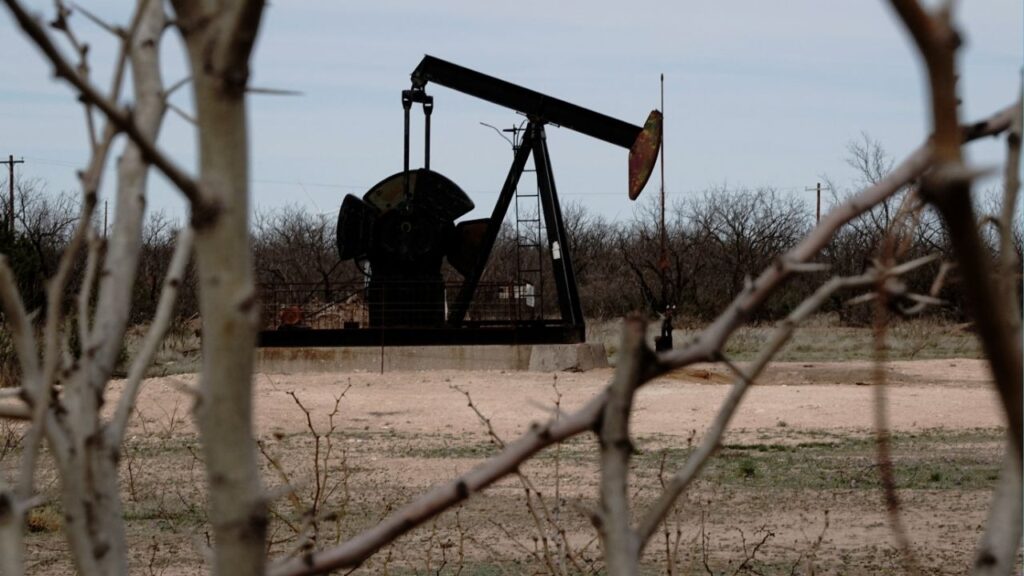
Oil Prices Climb Over $1 on Worries Over Iran-US Talks
